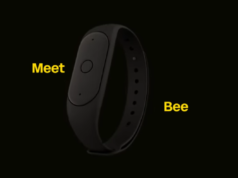You may want to take a cyber security lesson from grandma and grandpa.
Savvy scammers are succeeding in duping a new demographic — millennials.
Microsoft and the National Cyber Security Alliance conducted a global survey looking at the new methods fraudsters are using — and who is falling victim to them. They found millennials are being snared, while seniors are being even more skeptical when reached by a scammer.


In the past, a scammer would call a senior citizen claiming to be from a reputable company to sell them tech support. With new methods, scammers have been able to target younger generations through entry points such as pop-ups, unsolicited email, and scam websites claiming to offer services they need.
Related: The New Way You’ll Get Hacked: Through That Banking App on Your Phone
The new approaches are working. Two-thirds of those surveyed reported experiencing some sort of tech support scam in the past year. Perhaps most alarming, one in five people said they unwittingly continued with the fraudulent interaction, whether it was giving a scammer remote access to their device or by making a payment.
But senior citizens aren’t the top group being scammed: Half of those who said they continued to take the bait were millennials, falling between the ages of 18 and 34, according to the survey.
Only 17 percent of seniors admitted to falling into a scammer’s trap, suggesting seniors have developed a healthy amount of skepticism when it comes to cyber scams, according to the survey.
People 65 and older are still more likely to be reached via an unsolicited call (44 percent) compared to by a pop-up ad (38 percent), unsolicited email (33 percent) and being redirected to a website (26 percent).
So how can you suss out what’s a scam and what’s the real deal?
If you receive a call from someone claiming to be from a reputable software company, Microsoft recommends being skeptical. Ask whether a fee is involved and never hand over control of your device unless you know you’re talking to a legitimate representative of a software company and you’re already a customer.
One way to do this: Ask for their contact information and run a Google search for the phone number to make sure its legitimate.







